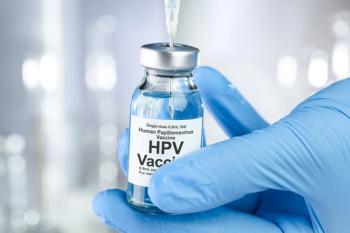
A recent study reveals that maternal body mass index during pregnancy is associated with children's mid-childhood educational attainment, whereas maternal glucose status shows no significant impact.


A recent study reveals that maternal body mass index during pregnancy is associated with children's mid-childhood educational attainment, whereas maternal glucose status shows no significant impact.

A recent study reveals that expanding pregnancy prevention services in emergency department care may address the high incidence of unintended pregnancies.

A recent study reveals a significant increase in infant and neonatal mortality rates in Texas following the 2021 early-pregnancy abortion ban.

Review some of the top stories from the Contemporary OB/GYN website over the last week, and catch up on anything you may have missed.

A recent study found that maternal psychological distress during the COVID-19 pandemic is associated with reduced white matter and other brain volumes in newborns, highlighting potential long-term impacts on child development.

A recent study concludes that antibiotic use during pregnancy or infancy is not associated with increased risks of autism spectrum disorder, intellectual disorder, or language disorder, though a slight increase in epilepsy risk was observed.

A recent study reveals that heat waves significantly elevate the rates of preterm and early-term births, highlighting a critical public health issue.

A recent study investigated the effects of antenatal tocolysis on neurodevelopmental outcomes among children aged 5.5 years following preterm prelabor rupture of membranes, revealing no significant differences in outcomes.

New research reveals that while nearly 1 in 5 sexual and gender minority youths experience changes in gender identity, these changes do not correlate with increased depressive symptoms.

Mary Claire B. Manske, MD, discusses her findings on the unexplained increased risk of brachial plexus birth injury among Black and Hispanic infants, highlighting the need for improved prenatal care and further research.

Explore the latest findings revealing vaccination rates among children aged 9 to 17 years, uncovering demographic disparities and highlighting the crucial role of vaccination in combating human papillomavirus infections and related health risks.

A recent study highlights the heightened risks of maternal and neonatal morbidity and mortality associated with combined cannabis and nicotine use during pregnancy, urging further investigation into their impact on short- and long-term outcomes.

A recent study reveals associations between concomitant histological fetal inflammatory response and adverse neonatal outcomes, urging further investigation into implications.

Dive into the rising prevalence of sexually transmitted infections among adolescents and young adults, exploring educational gaps, vaccination rates, and the imperative need for open conversations between patients and health care providers to combat stigma and enhance preventive care.

As teenagers become sexually active, are they fully educated on contraception and pregnancy?

A recent study found no link between antenatal corticosteroid administration and adverse neurodevelopmental outcomes in children aged 6 years or older, offering reassurance for late preterm delivery practices.

Recent research evaluated the impact of maternal hyperoxygenation on neonatal Apgar scores, revealing no significant enhancement in outcomes among women with pathologic fetal heart rate tracing and suggesting limited efficacy of hyperoxygenation therapy in this context.

Review some of the top stories from the Contemporary OB/GYN website over the last week, and catch up on anything you may have missed.

Review some of the top stories from the Contemporary OB/GYN website over the last week, and catch up on anything you may have missed.

A recent study revealed that employing maternal heart rate monitoring alongside fetal heart rate monitoring during labor significantly decreases the incidence of neonatal encephalopathy and severe neonatal acidemia.

Investigating the impact of prenatal vitamin C supplementation on lung function and wheeze occurrence in offspring of pregnant smokers, revealing insights into mitigating respiratory risks.

Learn from Paige Meizlik, MD, MSTR, about the FDA's Fast Track Designation for nipocalimab, offering hope for addressing the critical unmet needs in treating fetal neonatal alloimmune thrombocytopenia and advancing maternal-fetal immunology research.

New research led by the National Institute of Allergy and Infectious Diseases reveals sustained antibody levels in infants born to vaccinated mothers, underscoring the importance of maternal vaccination in safeguarding newborns against COVID-19.

Discover the need for improved evidence-based research on maternal vaccine safety, especially in underrepresented low-income settings, as highlighted by a recent study.

The FDA's Fast Track Designation for nipocalimab marks a significant step in addressing fetal neonatal alloimmune thrombocytopenia risk in pregnant patients, potentially revolutionizing treatment for this severe condition with unmet medical needs.